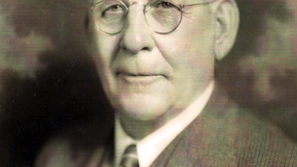Opinion: Moved-up primary succeeds as state exerts significant influence
- Tom Elias
- Mar 7, 2020
- 3 min read
It turns out California’s politicians were right: they advanced the state’s presidential primary election from its traditional June date to the earliest time available under Democratic Party rules to attain more national influence, and they achieved that goal.
First, 13 other states quickly followed California onto March 3, creating a coast-to-coast Super Tuesday that still left the Golden State’s pot of delegates the day’s biggest prize. That’s influence.
In turn, this forced decisions onto candidates who managed only middling performances in the four small-state “undercard” primaries and caucuses, and that wound up creating either a two- or a three-man race by the time California’s primary day arrived. Again, this state’s outsized influence was felt heavily even before a vote was cast here.
Then came the preliminary results, which appeared to leave the race to oppose President Trump this fall pretty much a two-man affair.
All this represents a huge change for California. For most of the last 50 years, America’s most populous state had little or no voice in choosing presidential candidates for either major political party, even though it largely fuels both the national economy and culture.
That changed a little in 2008, when California moved its primary up from the customary early June date to Feb. 5, only to be joined by a dozen more states seeking to dilute its influence, just as they did this year.
Nevertheless, Hillary Clinton’s big win here 12 years ago forced eventual winner Barack Obama to keep campaigning through other primary states until late spring.
Then in 2016, California’s primary returned to its traditional June slot, giving the state no say at all in shaping the eventual matchup of Mrs. Clinton vs. Republican Donald Trump.
Which helps explain why California opted to vote early this year. And California could have been decisive if Democratic voters had solidified behind one candidate to take on Trump in the fall. They did not. Nevertheless, the California vote will reverberate for months.
Although 13 other states also voted on “Super Tuesday,” Bloomberg’s six weeks of campaigning and spending here and in Texas, while ignoring the small earlier states, put him in third place after the California primary and probably deprived former Vice President Joe Biden of a plurality here.
If you figured the $90 million-plus spent here (an economic benefit of moving up the primary) by Bloomberg and fellow billionaire Tom Steyer on a per-voter basis, they paid about $40 for every vote they both won.
Once again, if an early candidate like Biden or Vermont Sen. Bernard Sanders or Massachusetts Sen. Elizabeth Warren had thoroughly dominated here, any of them could have become the big favorite.
Now, even though Sanders won here, the ideological split among Democrats between moderates and extreme liberals will force him to keep campaigning hard for months. Had Warren dropped out before California, it’s possible Sanders could have held a dominating position because of the 415 first-ballot national convention delegates California offered, almost one-fourth of the 1,991 needed for a first-ballot nomination.
Also, few Democratic candidates took advantage of California’s conducting what amounted to 54 separate primaries, one statewide and one in each of 53 congressional districts. Any Democrat who cared to campaign heavily in Republican-dominated districts would not need to win over many voters in order to get the several delegates each district provides. Bloomberg was the only candidate to do much of this and it won him delegates.
The others essentially threw up their hands when they got to California and saw they couldn’t possibly match the outreach Bloomberg bought with his many millions, along with the established name recognition and popularity of Sanders and Biden.
The result is that California saw plenty of benefit in the early primary: Media businesses (but not newspapers) made millions, mostly off Bloomberg and Steyer, who began their big spending in December. There’s also little doubt this state’s positioning helped winnow the field down.
So California may not have been decisive, but both its actions and its votes shaped the race the nation will see for the rest of the spring. That was this state at last exerting some of the influence it deserves to wield.
• • •
Email Thomas Elias at tdelias@aol.com. His book, “The Burzynski Breakthrough: The Most Promising Cancer Treatment and the Government’s Campaign to Squelch It,” is now available in a soft cover fourth edition. For more Elias columns, go to www.californiafocus.net.


























Comments